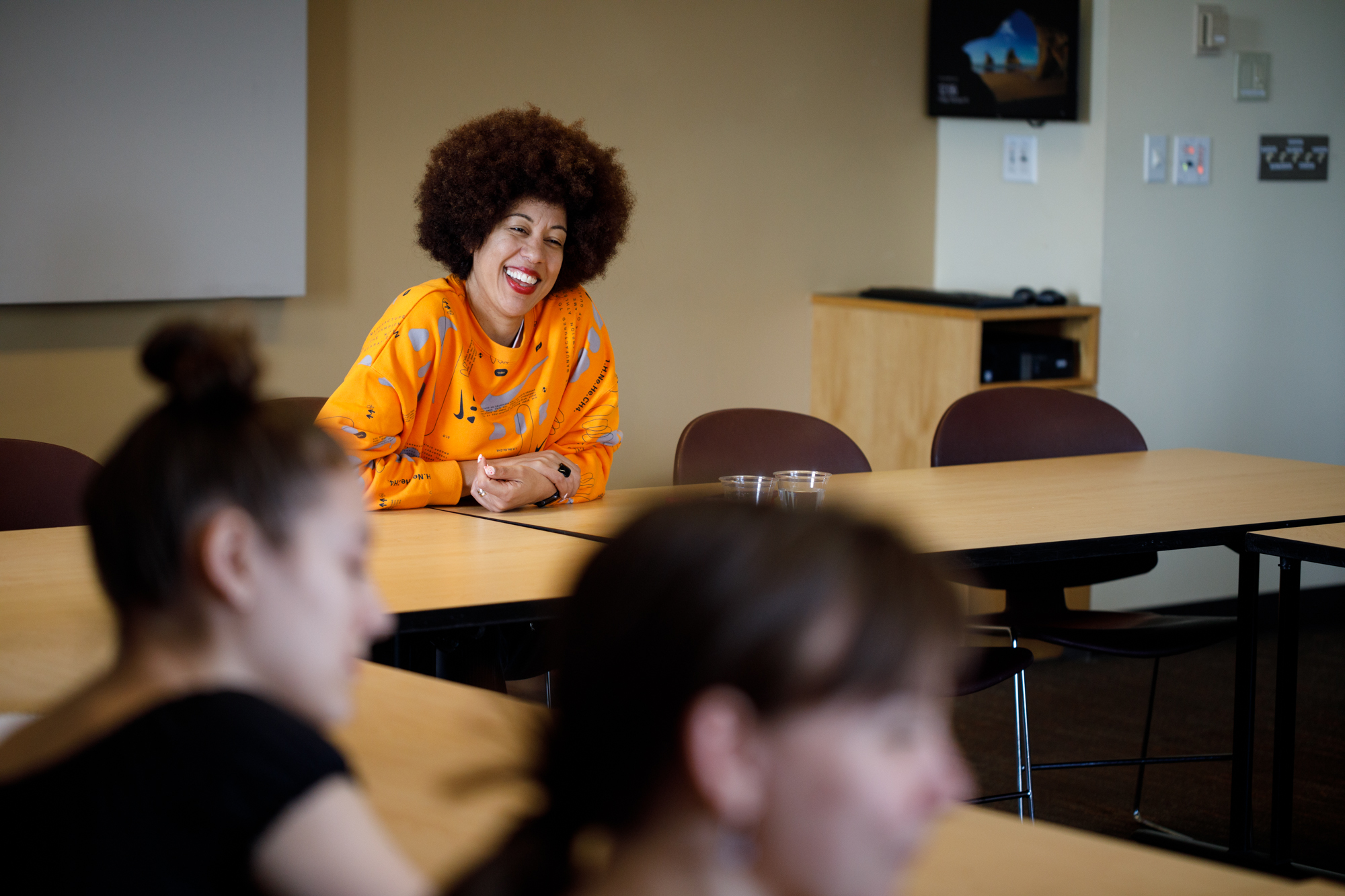Erin Jones jokes with students in attendance to her talk on Feb 14. 2020. Jones opened her talk by asking some of the audience what their name is, where they were from and why they wanted to come to the talk. Joe Addison // AS Review
By Jack Taylor
Erin Jones, a political consultant and former educator, spoke to Western students about the role of race in politics and activism on Feb. 14. Jones was the first Black woman to run for a statewide office when she ran for Washington State Superintendent for Public Instruction in 2016.
Coming to Western during Black History Month, Jones travels nationwide to speak to students of all grade levels about race in politics. Now a consultant, Jones goes around to schools of all levels to share her story and help inform people on race in politics.
Despite being a speaker, Erin Jones doesn’t prepare speeches. Already speaking to 5,000 people in the past week alone, Jones prefers to tailor speeches to who is in the room with her. In a room of 20 people, Jones asked each student to say their name and give a description of who they are.
Student Senator At-large Connor Farrand attended and spoke about what the event meant to him.
“I just want to learn about ways in which I can live more, with more sensibility and sensitivity to racial issues in such a homogenous environment,” Farrand said.
The Representation and Engagement Programs office put on the event. Nora Harren, the AS representation and programs director, spoke on why she attended.
“I am here because I am really passionate about political work and, where I am from in Idaho, we don’t talk about intersectionality and different identities and how that plays into [politics],” Harren said.
Jones drew on many personal stories to share her point of view when discussing the role of race in politics. Detailing how she grew up internationally, it wasn’t until she attended college in America that she decided to stay and start a career in education.
Jones spent much of the event telling the audience about what she learned from her time in politics and education.
One of the most evident things Jones tells people is how just because Washington State appears liberal, does not mean that racism isn’t active in the state.
“One of the dangers of Washington State is that we tend to think of ourselves as much more progressive than we actually are,” Jones said. “We are progressive on certain issues, but we are not progressive when it comes to talking about race.”
Jones said that if she had a dollar for every time she had somebody say that talking about race was racist, she would be a millionaire.
“We are so afraid to talk about race, and yet I would say to us that it’s an uncomfortable conversation but it doesn’t have to be painful and it’s absolutely necessary,” Jones said.
Another key point Jones laid out is how she does not believe in safe spaces.
“I call spaces, brave spaces and what that means is that we are all going to be a little uncomfortable,” Jones said.
The time to talk about race can happen at any age, according to Jones. Having previously held three training sessions with middle schoolers in Seattle, Jones believes no one is too young to have these important discussions.
“It was powerful to watch these students make the connection to ‘oh wow, that’s why the N-word hurts,’ and that’s the work I get to do,” Jones said.
Jones also believes that through experiences with her own family that people are not hateful but simply ignorant.
“I absolutely believe that if ignorance and stupidity can divide my family, it is the reason that we are divided as a country, and I am determined to fight ignorance,” Jones said.
Jones ended her time with leaving words of encouragement for other black women.
“I wear my hair big and proud for you. I wanna be the me that I didn’t have when I was your age,” Jones said. “It’s why I chose to wear my hair this way. I have nails that are always fun because I want girls like you to know that we are out here and that you are beautiful just as you are.”

